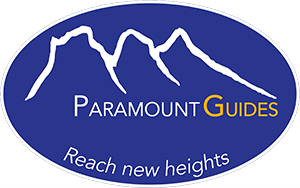
Managing Avalanche Terrain (MAT)
Are you planning to return to the backcountry this winter? Did you take your AST1 last year but not sure how much avalanche safety you remember? Then the Managing Avalanche Terrain program is the right choice for you.
This program consists of 1 on-line session to review basic theory as well as how to plan and organize the field day (Expect some homework to be done before the field day). Plus one full day in the field.
Our instructor’s extensive knowledge allows us to cater this training to your own needs; from backcountry skiing to snowshoeing.
The Field day location will be chosen depending on weather, avalanche conditions as well as the needs, abilities and level of participants. By the end of the day each participant will practice and challenge their risk management abilities.
Program:
One on-line session: From 6:30 pm to 8:00 pm.
Field Day: From 8:30 am to 4:30 pm. The field schedule may vary depending on the location selected.
Details:
Cost: Please contact us to give you a quote based on your needs and group size.
Ratio: 1 Instructor to a maximum of 8 students.
Program includes: Guide/Instructor, instructional and teaching material.
Program does not include: Transportation, food, personal technical and avalanche safety gear.
Instructional material: Provided once registered.
Pre-registration required: For more details please contact us at guides@paramount-guides.com
Additional information
Please keep in mind that prior to heading out for our MAT Program all participants are required to read and agree to waiver terms and conditions prior to booking completion. In the case of the AST programs there are two waivers, one for the Association of Canadian Mountain Guides, and another for Avalanche Canada, both of which can be found at paramount-guides.com/waivers
Our field day takes place in a backcountry winter environment. Conditions can be harsh, and you need to be dressed appropriately. Being warm and comfortable will enhance your learning experience.
This course is designed to provide a review of the main avalanche safety concepts and their field use for safe decision making. A good understanding of your own gear and a good physical shape will give the participant a better outcome for the day.
Logistical details
Transportation: You must arrange your own transportation to the meeting point.
Food: Bring snacks and a lunch, plus 1 to 2 litres, ideally hot drinks.
Clothing: For the field day you should come prepared for a full day in the outdoors.
Equipment List:
You will need either Skis, Split board or Snowshoes plus ski poles.
Day pack large enough to hold spare clothes, lunch, shovel and probe.
Avalanche transceiver with new batteries.
Collapsible Avalanche shovel.
Avalanche probe.
Sunglasses and/or ski goggles.
Personal 1st-Aid Kit for small blister (our guide carries a 1st-Aid Kit for emergencies, plus a communication device).
Your own avalanche terrain notebook (write-in-the-rain preferable) plus pencil.
Program
One On-line sessions - Zoom Platform - From 6:30pm - 8:00pm
Field Day / 8:30 am to 4:30 pm (lunch in the field)
Meeting point to be chosen during the on-line session as a group decision. The decision will be made based on conditions and the group’s abilities as well as driving times.
On-line session program
Introduction, Personal experience and goals.
Course goals and objectives, waivers.
Review of all winter travel backcountry hazards.
Assessing avalanche hazard and reducing risk.
Avalanche Terrain recognition and use.
Review of the Avalanche Terrain Exposure Scale (ATES).
Use of Avalanche Danger Scale and Public Avalanche Bulletins.
Decision making and human factors.
Field Day logistics - Planning, logistics and getting ready.
Gear.
Homework assignment.
Field day program
Meet, review, sign waiver, check avalanche training gear.
Risk evaluation - Weather and public avalanche bulletin discussion.
Goal and route definition. Terrain review and ATES
Review of Human factors and introduction of leader of the day concept.
On route review, use and practicing the Avaluator™.
Group Management, Travel Habits and Decision-Making.
Field observations (Wind, Precipitation, Temperature).
Transceivers and companion rescue practice.
Managing and reducing risk in avalanche terrain.
Route selection, track setting and terrain recognition and micro-management.
Snow study profile, stability tests and identifying layers of concern.
Group rescue scenario – response and priorities.
4:00 pm
Debrief
Maintaining and developing further avalanche skills training.
MAT certificate presentation.
End of course!
Our MAT training follows
Avalanche Canada guidelines and curriculum.





